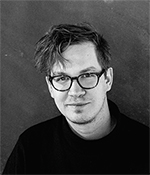Date:18~21 / November, 2019
Venue:National United University
Festival Organizer : D&A Lab, The department of Architecture
・・・・・・・ ・・National United University,
Co-Organizer:Zaha Hadid Architects、University of Kent
. 報到及工作營地點 workshop and registration.
・ 《 限國立聯合大學建築系學生、碩班甄試考生等 》
. 報到時間:11月18日上午九點前
. 報到地點:國立聯合大學二坪山校區 ( 國際會議廳 )
・ National United University ( International conference hall )
. 苗栗市恭敬里聯大1號
. 1, Lien Da, Kung-Ching Li, Miao-Li 360, Taiwan, R.O.C.
. 講座地點 Master lectures.
・ 《 不限身份全程免費・現場排隊入場 》
. 演講時間:11月20日下午三點
. 演講地點:國立聯合大學二坪山校區 ( 國際會議廳 )
. National United University ( International conference hall )
. 苗栗市恭敬里聯大1號
. 1, Lien Da, Kung-Ching Li, Miao-Li 360, Taiwan, R.O.C.
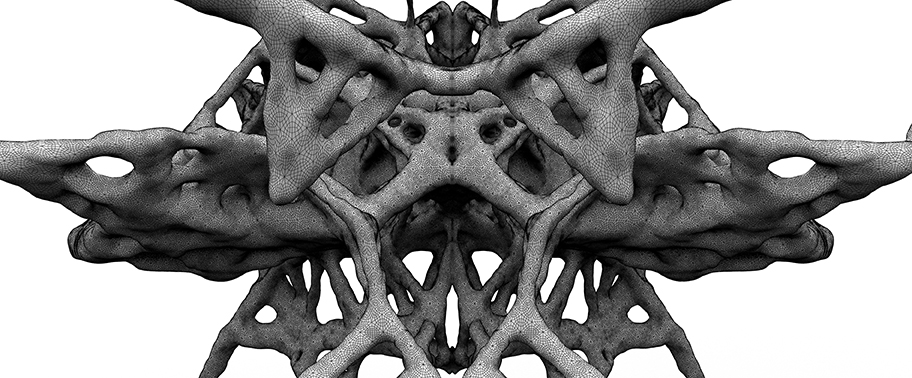
ZHA+KENT+NUU Agenda
A traditional notion of the discipline of architecture is being disrupted with the advent and implementation of new digital technologies and tools, often adopted from different scientific or industrial disciplines. At the same time, built environments of the 21st century are facing unprecedented challenges at many levels, where scientific understanding of wider environmental conditions and resources is necessary to appropriately address these. By implementing processes-driven design methods and integrating behavioural modelling strategies, an architects’ repertoire to propose habitable and liveable environments will be enhanced, following the aspects of wider cultural and environmental sustainability. Architecture communicates and exchanges information and resources with its adjacent environments, as similar as living organisms with their habitats and other species, creating complex metabolism leading to unique and emergent spatial and temporal living ecologies. By taking a systemic approach to design a system of processes discovered in the living environments into a logic of architectural and urban design, architects and experts of the 21st century will be able to respond to environmental challenges more rigorously and comprehensively where digital technology is intrinsically intertwined with scientific exploration and architects’ creative capacities.
ZHA+KENT+NUU Description
The workshop Emergent Proto-architectural Formations will explore potentials and advantages of advanced computational design methods to rapidly generate spatial digital artefacts, “proto-architectures”, based on systemic and processes-driven modelling techniques integrating the paradigm of emergence into computational models. Such proposed systems may be considered as adaptive formations responding to environmental demands appropriately, with the ability to socially interact, morph, or reshape according to internal or external stimuli. A variety of objects and digital permutations utilising bottom-up strategies to generate spatial forms will be examined and visualised in an interactive way harnessing Visual Programming strategies and advanced modelling and rendering Rhino/Maya workflows as a base for interaction and visual communication.
There is no specific prerequisite needed to attend this workshop.
Tools: Please install English version only.
( 全英語教學,請僅安裝英文最新版軟體 )
McNeel Rhinoceros 6 + Grasshopper、Maya
Addons: Please install English version only.
Anemone、Heteroptera、Cocoon、Pufferfish、Vray (Rhino plugin)、Keyshot

ZHA+KENT+NUU Schedule
Day 1: 18 November, 2019
Morning:
Introductory lecture: Parametric modelling, algorithmic and systemic thinking
Workshop: Rhinoceros introduction and Visual Programming tool Grasshopper:
Interface, functionality, basic controls, basic concepts, data management, data lists, filters, divide, merge, cull, shift, split, numerical sequences, data matching, repetition, random / construct domain, variables, logical operators, boolean values.
Afternoon:
Grasshopper modelling strategies: Attractors and simple vector fields
Day 2: 19 November, 2019
Lecture: Self-Organisation and Emergence
all day
Concept of self-organisation and emergence, differences, patterns, repetitive arrangements, interactive relations between low-level units to create more complex spatial qualities
Cell-based synthetic organism and proto-architectural objects:
Advanced vector fields, iterative processes in Anemone, interactive cells: attraction, repulsion, Heteroptera proliferation, demise function, Iso mesh modelling, speculative emergent objects.
Day 3: 20 November, 2019
Morning:
Lecture: Aggregation strategies, Examples from practice
Workshop: Autodesk Maya 2019 and animation
Modelling strategies: Introduction and exploring Maya 2019, polygonal and NURBS modelling, procedural and texture-based modelling, physics-based modelling, motion-based modelling.
Afternoon:
Workshop: Autodesk Maya and Grasshopper Rhinoceros workflow. Component strategies: surface population logic, space filling component logic, attractors, Pufferfish.
Day 4: 21 November, 2019
Advanced modelling, visualisation strategies and representation
Morning:
Workshop: Advanced modelling, visualisation strategies and representation
Finalising outcomes, scene optimisation, Stereoscopic visualisation, studio lighting, physical-based lighting, V-Ray in Rhino, KeyShot rendering
Afternoon:
Workshop wrap up, production of outcomes
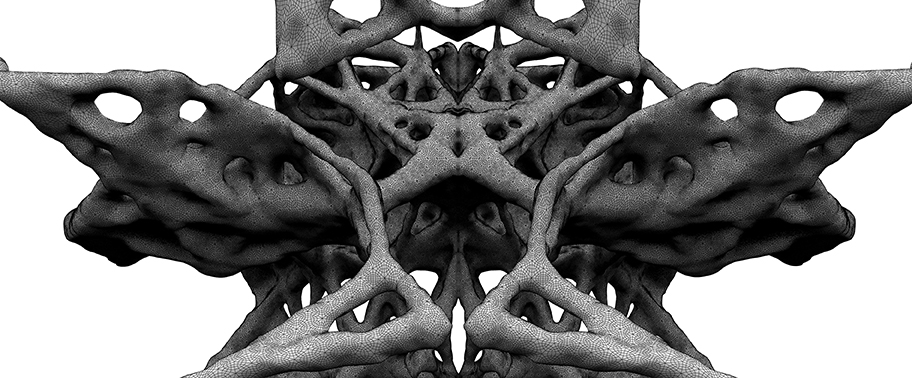
FESTIVAL ORGANIZATION TEAM 2019
1. Shi-Yen Wu , Assistant Professor
。Lead organizer / National United University, TW
。D&A Lab, Department of Architecture.
・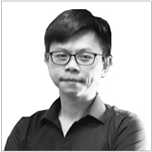
2. Peter Buš , Ph. D.
。 Co-organizer / University of Kent, UK
。 Digital Architecture Research Centre (DARC)
。 Kent School of architecture and Planning.
・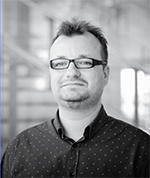
3. Martin Gsandtner , Designer
。 Co-organizer / Zaha Hadid Architects, UK
・